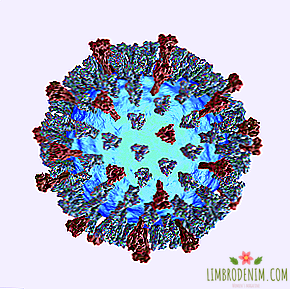"You do not want - you will not sit down": Why dependence is a disease, but not a personal choice
ATTITUDE OF THE SUPPOSING MAJORITY OF PEOPLE to the destructive dependencies is still based on the belief that their formation is an exclusively personal choice of a person. "Do not want - you do not sit down." Or, as an option, "you can get rid of any dependence if you only want." This distinguishes dependence on most diseases. It is unlikely that there are many people who are sincerely convinced that, for example, peptic ulcer disease appears only in those who want it. And it seems clear that a person suffering from obsessive-compulsive disorder does not need to be advised "just to be less nervous." However, when it comes to addiction, these rules seem to cease to act, which leaves an imprint not only on the public image of dependent people (they are considered weak and vicious), but also on approaches to treatment of addiction.
This attitude begins to change, especially in the light of sociological and medical research: they indicate that addiction and any addiction in general (hereinafter, addiction means dependency on taking any chemicals allowed or prohibited by law; addiction is psychological disorder , leading to addictive behavior, but not necessarily caused by addiction to a particular substance) is not always a consequence of lack of will. There are both a predisposition to addiction, and social factors that push a person to its formation. Does this give the undeniable right to say that addicts are not to blame for their addiction - just as a diabetic is not guilty of his diabetes? Is it true that a predisposed person is doomed to “sit down” sooner or later, no matter what it is? And what is the true cause of addiction?

Dependence as a genetic failure
Studying the question of whether a person can be programmed from birth to any kind of dependence, the National Center for Biotechnological Information came to the conclusion that genetics is at least half responsible for the predisposition to this or that dependence. Another study calls similar numbers - 40-60%. However, these findings only report potential vulnerabilities. By themselves, they do not confirm or deny that addiction is something that a person brings on himself. Predisposition does not mean neither the disease itself, nor the tendency to a specific dependence.
Dependence as a social phenomenon
Although statements like "society has made me so (such)" are more often perceived as an excuse, removing personal responsibility, in the case of dependence as a "social disease" they are partly true. There are many historical examples of how poverty, unemployment, and social depression turned out to be the ideal medium for the spread of hard drugs. Whether it is the crackdown epidemic in the USA of the 80s, the heroin plague in the declining industrial cities of Thatcher Britain, the sharp increase in the use of opioids in Russia, which has been going on since the beginning of the 90s. From a more recent one, we can single out the world economic crisis of 2008, which led to progressive unemployment in European countries, followed by an increase in the use of cannabinoids and the so-called new substances among people aged 15 to 24.
However, sociological calculations unequivocally speak only about the relationship of dependence and social depression: poverty contributes to an increase in the number of dependencies - but growth, in turn, leads to impoverishment. In order to determine what was the cause, and what was the consequence, it is necessary to consider the case of each person individually and in detail - sociologists often do not have the resources for this. The second nuance, which is also worth considering: social insecurity can encourage the development of dependence and accelerate self-destruction, but not be its cause. If a person was born and grew up in a dysfunctional environment, this does not mean that he will certainly become addicted.

Addiction as a defensive psychological reaction
Anna Sarang, President of the Foundation for the Promotion of Health and Social Justice. Andrei Rylkov (included in the register of foreign agents), insists that drug addiction should be considered together with other addictions, focusing on its psychological aspect: "In Russia, drug addiction is usually separated from other addictions and compulsive disorders and considered as a set of reactions and behaviors caused by this or that substance. It seems to me that this is a dead-end path. Researching the genetic nature of dependence also does not seem to me to be a promising direction.
In my experience, most dependent people usually have some kind of childhood trauma. Addiction for them is an attempt at self-healing. And the focus is on how to identify this injury. This is not necessarily a childhood trauma - it can be a social trauma, disorder associated with the organization of modern society and the economy, the inability to find a job, to realize himself, to find a relationship that suits him. A person cannot cope with this — not because it is weak or bad, but because life is difficult. Often, addiction is a response to external circumstances. "
"Most dependent people usually have some kind of childhood trauma. Addiction for them is an attempt at self-treatment," says Anna Sarang.
"Addiction would be more correctly considered as compulsive behavior," Anna Sarang continues. "Drug addiction in European countries has long been studied by addictology, along with, for example, gambling. If even ten years ago the medical community was looking for biomedical solutions to the problem, now more and more often psychotherapeutic methods. "
Gabor Mate, a Canadian addictologist who has worked with the most severe forms of drug addiction for many years, arguing about the nature of the phenomenon, states that he does not see a fundamental difference between different types of addictions: "Drugs themselves do not lead to addiction - this is a myth. Most people who try drugs do not become addicted. The question is why some people are vulnerable to addiction. Food is not addictive, but some people become psychologically addicted to food. Shopping and television are not addictive, but some are addictive. "
As an example, Mate cites her own psychological trauma and the addictions he developed as an adult, from working and collecting compact discs with classical music recordings: “Why did I become a workaholic? Because [my family] does not like me, I would at least become indispensable I will become an important doctor and will be able to compensate for my sense of uselessness. This leads to the fact that I work all the time, and when I don’t work, I am absorbed in the process of buying music. What signal do my children receive? The same one - that I don’t need them. And so we unknowingly ne We’re reducing the injury from one generation to another. "
"Addiction would be more correctly considered as compulsive behavior. Drug addiction in European countries has long been studied by addictology, along with, for example, gambling."
A similar idea is expressed in a conversation with Wonderzine I., a woman who suffered from addiction for many years: "Dependence is a complex and chronic disease. Dependence can manifest itself in any area of life. It is not necessary that substance use is gambling and dependence on feelings. In general, There are a huge number of types of addictive behavior. You can only overcome active addiction, stop using substances or stop playing, but dependence will manifest itself in another area of life. For example, a person becomes a workaholic or a fanatical "He begins to play sports. Dependence is one, but its manifestations and forms are different. An addicted person does not know the norm in anything. Dependent on drugs, having ceased to use, very often becomes dependent on food, feelings, emotions, or work."

Dependence as a stigma
Without justifying the harm that addictive behavior does, and without removing personal (including criminal) responsibility from dependent people, it is worth getting rid of common misconceptions regarding the addiction itself. The psychological approach to addiction partly solves this problem.
Addicted people are treated as weak-willed puppets. This stereotype continues to live, despite the fact that in reality the addict can be a very collected and purposeful person. “People think that stumbles and alcoholics are neglected people who lack motivation. It’s not so - they are incredibly organized. They can sneak away in order to drink a shot of whiskey, and you won’t even notice their absence. This is a kind of micromanagement”, - tells Simon Pegg, who has been struggling with alcohol addiction for many years. His example at the same time refutes another misconception: an addict can perfectly read his own addictive behavior and understand its destructive effects (the actor compares this state with the appearance of a second head, which can only think about one thing).
It is customary to treat dependent people as weak-willed puppets, although in reality a dependent person can be a very collected and goal-oriented person.
Which brings us to the important question: does a person stop being addicted, having got rid of biochemical dependence - or, using Pegg's metaphor, does this “second head” disappear? "People do not use substances because of the protection of the subconscious mind. A person dependent on substances at the subconscious level has a program of self-destruction. Addictive behavior is self-destructive behavior. People may not use substances for years, but do not cease to be dependent," says I. In my experience, people who work with their addiction according to twelve-step programs remain sober for 10–15 years, but the disease “addiction” is very strong and therefore it is necessary to make efforts to stay sober every day. "
Understanding of dependence as a serious illness, the treatment of which can last for years, will bring us closer to the understanding of those who for whatever reason turned out to be its hostage. For example, to the realization of why Philip Seymour Hoffman, who remained a sobriar for twenty-three years, died of an overdose of hard drugs. Or understanding of the recent breakdown of Demi Lovato, who, judging by the song “Sober”, released shortly before him, was well aware of the dangers of relapse. Marginalization of the disease certainly does not contribute to its cure.
Photo: mayakova - stock.adobe.com, mayakova - stock.adobe.com





